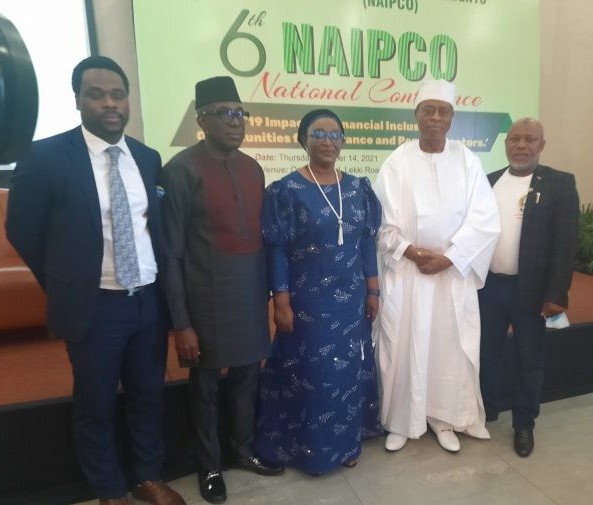By Sola Alabadan
Former Director General of Lagos State Pension Commission (LASPEC), Mrs. Folashade Onanuga, has charged insurance and pension operators on creativity and innovation in their products development and service delivery by focusing on meeting the needs of the people for enhanced financial capacity.
Mrs. Onanuga made this call while delivering the theme paper of the 2021 national conference of the National Association of Insurance and Pension Correspondents (NAIPCO) titled “COVID-19 Impact On Financial Inclusion: Opportunities For Insurance & Pension Sectors” in Lagos today.
She also enjoined the operators to leverage the opportunities thrown up by the COVID-19 pandemic to grow the sectors and contribute to the National economy.
While affirming that the pandemic has caused severe disruptions, she pointed out that opportunities have also been created to grow customer base on account of the obvious fact that there is no real social security arrangement by government in the event of sudden and unexpected events and so citizens need to make plans by themselves for wellness both in business and family life.
According to her, “Economic shocks like sudden loss of job, illness or death can send people living just above the poverty line into abject poverty. So whether one is in the formal or informal sector, there is the need to have a safety net. The sudden and unforeseen calamities created by the pandemic has highlighted the need to plan for unforeseen circumstances and even early retirement.
To take advantage of these opportunities, she said, the pensions and insurance industries must remain committed to the inclusive growth of the Nigerian economy, creating opportunities for lower income groups to be part of the broader financial system.
She noted that, “Financial inclusion is achieved when adult Nigerians have access to affordable financial products and services that meet their needs. Financial inclusion can only be achieved when financial transaction processes and documentations are transparent, simplified and seen as meeting needs of the people and at the same time being beneficial to the financial services sector.”
“Speaking of insurance, opportunities exist to increase insurance penetration and the customer base, both in the retail and corporate segments of the market if the right moves are made. Insurance penetration has remained at an average of 0.4% of GDP driven largely by a general lack of understanding and awareness of the benefits of insurance products, specifically amongst low-income Nigerians. We need to build trust. The Banking Sector has managed to bridge this gap to an extent.
“Attempts have been made to improve the performance of the insurance industry through regulation and legislation – new capitalization requirements have been announced and reviews of several key laws are being discussed to bring them up to current realities,” Mrs Onanuga added.
In improving access to insurance and making products and services more inclusive, we are discovering that there is a role for all stakeholders to play.
For pension sector, according to the former LASPEC boss, “inclusive growth in pensions must recognize the peculiarity of the population segment being addressed, adding that This recognition must have an impact on how products are designed and how lower income segments of the population interact with pension funds. If you consider what happens in developed economies, there are different kinds of plans to meet different needs.”
For the trust gap to be bridged, Mrs. Onanuga called on the National Pension Commission (PenCom) to take more advantage of digitization in pension operations to make transactions easier and more accessible by taking example of what the banks have done to provide banking services to lower-income population groups by ensuring that structures are put in place before the release of pension laws to ensure that all aspects of the law are implementable.

